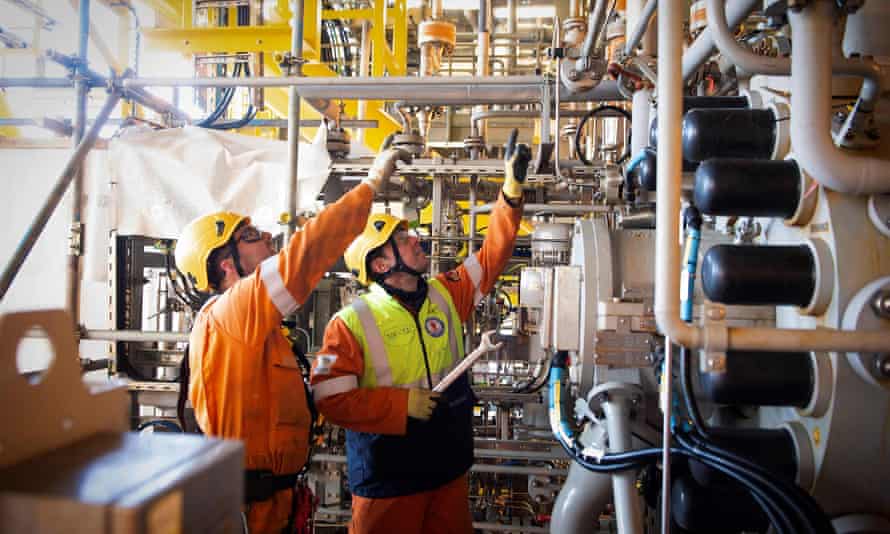People in the UK want bold climate action – why aren’t politicians listening?
Across the country, citizens’ juries have shown strong support for ambitious green policies that improve lives

The fight against climate change is often presented as a binary decision between a costly but sustainable future or missing environmental targets while protecting people’s jobs. Not only is this framing environmentally dangerous, it’s politically unnecessary. There is strong support for ambitious government policy to tackle the climate crisis, and optimism about the positive benefits of doing so, as long as the measures taken are fair.
The IPPR Environmental Justice Commission, which publishes its final blueprint for a fair transition today, has seen this first-hand from hundreds of hours of conversations with citizens across the UK. Over the past 18 months, we have convened “citizens’ juries”, where people from different areas are randomly invited to take part in a series of events, to hear from experts and discuss and propose their own ideas. We spoke with people from all walks of life and different viewpoints in Aberdeenshire, Tees Valley and County Durham, Thurrock and south Wales. In each place, we asked these jurors what a fair transition would look like to them.
Our findings were clear and arresting. Jurors are concerned the UK government is acting too slowly, and wants it to move faster. They know that addressing the climate crisis will require the whole of society, including businesses, to get involved, and they want government to show real leadership in driving this. They recognise the challenges we face but are overwhelmingly optimistic about what a greener, fairer future for the country could look like, from more good jobs to flourishing local wildlife, access to nature and revitalised neighbourhoods and communities.
Most jurors felt strongly that communities and local areas should have more of a say in how this transition takes place. They were clear there is no one-size-fits-all approach, and people should be able to shape their areas, with local government afforded the power and resources to lead the way. The juries were clear that the transition must be fair: those who are set to lose out should be protected, while those least able to pay should not bear the brunt of the costs.
In Thurrock, Charles told us that decarbonising homes through measures such as installing insulation could be a “win-win” for both the environment and families, who would benefit from lower heating bills. In order to make the best choice, people need access to information about the options and benefits. The government will need to meet those who can’t afford to pay upfront costs halfway. The commission therefore proposes the “GreenGo” scheme, a one-stop shop offering advice and financial support to help households upgrade home insulation and switch to greener heating and transport.
In Aberdeenshire, Caitlin told us how reliant the community is on the oil and gas industry. Her father is one of the 10% of people in Aberdeenshire or Aberdeen city who work in oil and gas. Despite this, she was clear that the transition away from fossil fuels does need to happen. This will mean applying a “forceful hand” to businesses that face little incentive to switch to renewable activities. Workers in the industry, particularly those who are older and may be more fearful of change, will need support, including retraining opportunities. This will enable them to make the most of their many transferable skills that could be applied to new, green industries – such as peatland restoration. In recognition of these challenges, the commission proposes a new “right to retrain” for workers in industries that will need to change – with proper funding attached.
Katie in south Wales told us that it’s really hard for people in the valleys to get around without a car. Even if the UK does successfully transition to electric vehicles, there will still be too many vehicles on the road, clogging up neighbourhoods. And not everyone will be able to afford an electric car. Katie told us she wants to see it become much easier to get around without a car, with options such as cycle paths and places to hire bikes and scooters. Providing alternative methods of transport will be key to moving away from polluting and space-consuming cars; the IPPR is calling for free local public transport by 2030.
Our juries spent hours hearing different perspectives and discussing a path forward, with many telling us that being part of this process made them more likely to take action on the climate and nature emergencies and left them feeling more optimistic about the future. Not everyone can take part in a citizens’ jury, but polling shows that the message we heard from the jurors is reflected across the population more generally. Around two-thirds of people in the UK want the government to be doing more – and also spending more – on environmental issues.
Support for an ambitious green agenda is widespread, if it improves lives. Rather than staving off the worst, people are optimistic that by working together, the UK can seize the opportunity to build a greener, fairer future that includes those who are currently locked out of our economy and those who will be affected by future change. Politicians looking for a popular, green agenda would do well to listen to their insights.
-
Carys Roberts is executive director of the Institute for Public Policy Research